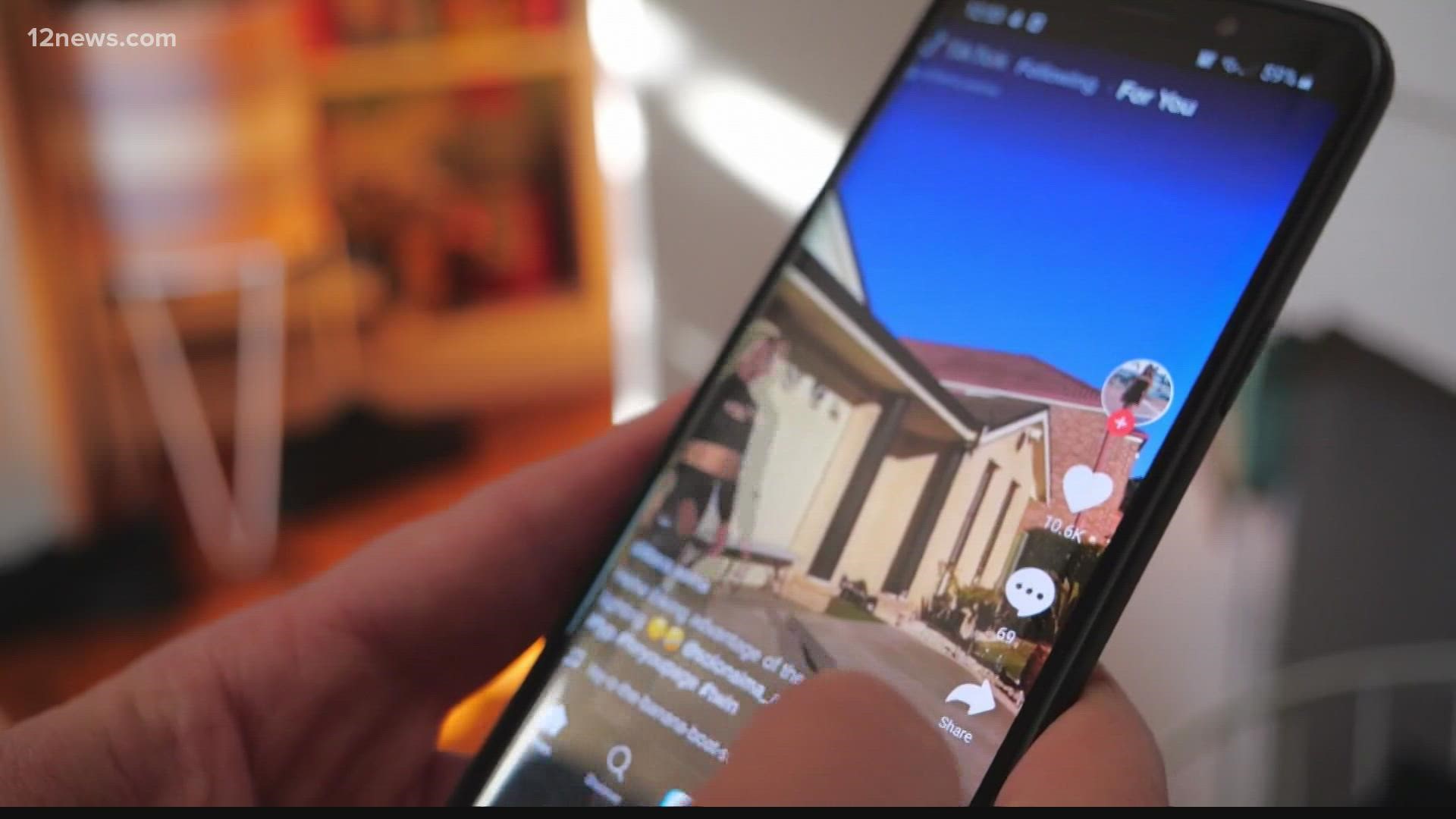PHOENIX — TikTok is far from just a viral video app.
Therapists and doctors warn there has been a sharp increase of teens self-diagnosing mental health disorders from ADHD to depression and Tourette Syndrome on the app.
"I'm getting a lot more people reaching out generally because I think I have this problem because of the TikToks I'm watching," Michael Klinkner, a licensed clinical social worker, said. "They will watch all these videos about Tourettes, and then they will decide they have Tourette's, and then they will pick up the tics that are a hallmark of Tourette's."
Klinkner said teens are especially susceptible to the influence of these videos. They can get caught in a cycle where they start to believe they have a mental health condition before developing symptoms of that issue.
"They are calling it a Horoscope Effect. I'm predicting it's going to happen, so therefore it happens. It’s a self-fulfilling prophecy," Klinkner said.
Banner Health put out a warning in November about the issue. In the article, Adeola Adelayo said there was an explosion of Tourette-like tics, and "every single case" was linked to watching TikTok videos about people with Tourette Syndrome.
Although the conditions may not be real, the symptoms themselves are.
"Kids are suggestable to the point they can pick up facial ticks because they watched enough videos about it," Klinkner said.
Klinkner said the social media site is not all bad. The hashtag Tourette's has 5.3 billion views on the social media site. Parts of the hashtag have helped raise awareness and reduce stigma about mental health issues.
However, the flipside has led to more people self-diagnosing non-existent mental health conditions.
"That's the thing because it's so tricky. They have all the symptoms of the issue, but they don’t have that issue," Klinkner explained.
Klinkner said people experience occasional symptoms of more serious mental health conditions like depression, ADHD, OCD and more. However, occasional symptoms do not mean someone always has the condition.
What parents should do
Klinkner says the issues will not usually go away on their own. A child may still need professional help to deal with any underlying issues. Also, the child should stay off of TikTok.
The good news, if treated, Klinkner said symptoms should stop after a couple of weeks.
How to prevent this in your child?
Klinkner said parents should be aware of what their child is watching. You do not need to keep a kid off of social media but know if they are getting into a cycle of seeing the same, potentially problematic videos.
If you need help, please check out this link.
I-Team
Learn more about other 12 News investigations by subscribing to the 12 News YouTube channel and watching our I-Team playlist.

